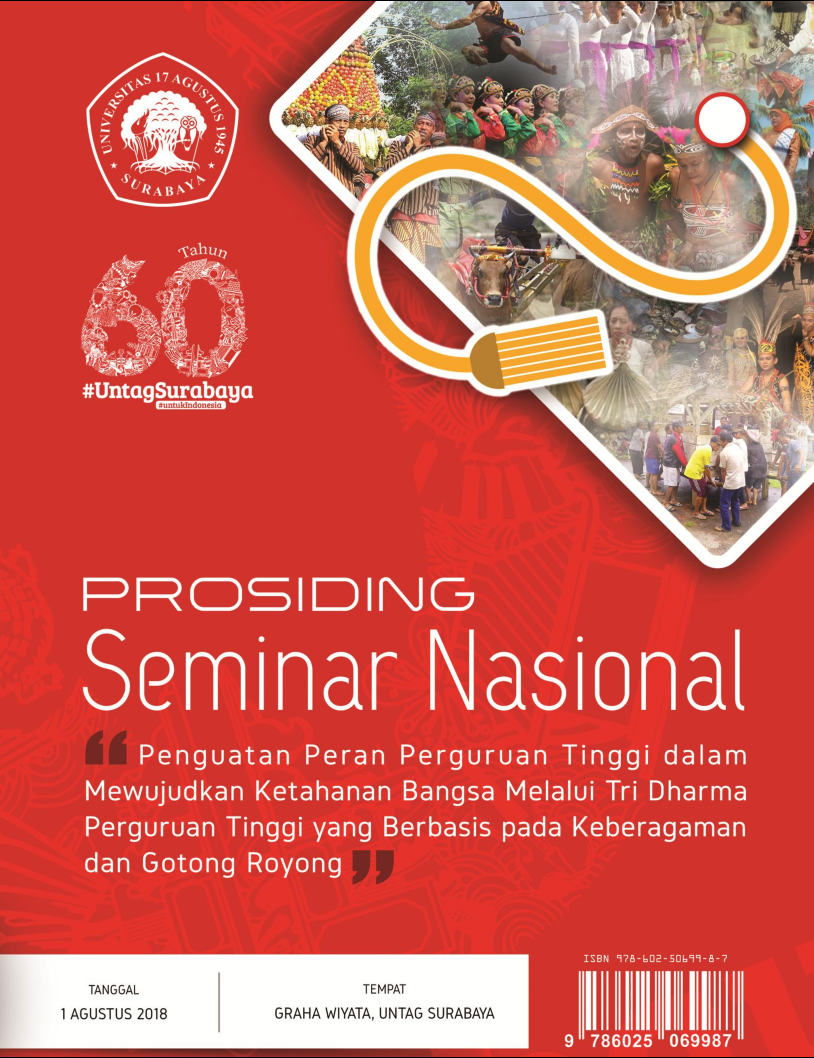IDENTIFIKASI MOTIVASI DAN ORIENTASI PEMBELAJARAN BAHASA JEPANG MELALUI ANGKET DAN KARANGAN BERBAHASA JEPANG
Abstract
Motivation is an affective variable in a person who must be considered in learning of foreign language. In addition to motivation, research on orientation or learning objectives of foreign languages has often been done before. This research is often done to identify one's success in learning a foreign language. Research on motivation and orientation of Untag Surabaya’s Japanese Language Study Program students aims to obtain data related to instrumentality and integrative capacity in learning Japanese. The instrumental orientation is an orientation related to academic or career interests for self-actualization in behavioristic and cognitive concepts, whereas integrative orientation describes learners who wish to unite themselves into the culture of the target language group and engage in social relationships that are the categories of constructivist concepts. In an effort to produce the data, this research is done by using observation research method through questionnaire and Japanese-language essay with the theme of Indonesian and Japanese culture. The research approach used is descriptive qualitative to describe the results of research in the form of words and narratives. The results of the study stated that 1) through a 6th semester student questionnaire Japanese Language Study Program in Surabaya, Surabaya was identified as having an instrumental orientation, which aimed to learn Japanese to get a good career; 2) through Japanese-language essays, students are identified as having an integrative orientation, the ratio of Japanese cultural mastery ratio is higher than that of Indonesian culture. Keywords: Motivation Theory, Instrumental Orientation, Integrative Orientation.Downloads
Download data is not yet available.
References
DAFTAR PUSTAKA
Chafe, W.L. (1976). Givenness, Contrastiveness, Definiteness, Subjects, Topics, and Point Of View.In C. Li (ed.), Subject and topic (hlm. 25–55). New York: Academic Press.
Khairah, Miftahul dan Ridwan Sakura. Sintaksis Memahami Satuan Kalimat Perspektif Fungsi. Jakarta: Bumi Aksara. 2014.
Lambrecht, Knud. Information Structure and Sentence Form.Cambridge University Press. 1996.
Sudaryanto. Metode dan Aneka Teknik Analisis Bahasa. Yogyakarta: Duta Wacana Universty Press. 1993.
Alfabeta.
Widodo, Mulyanto. (2017). Pembelajaran Bahasa Kedua. Yogyakarta: Textium.




